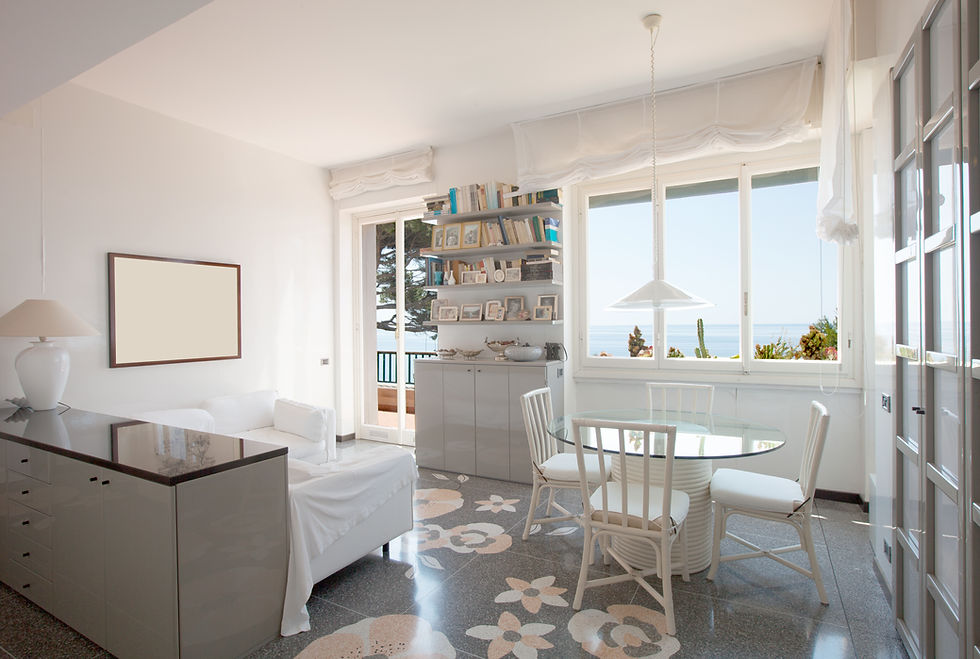Run the Air Conditioner or Open the Windows? How To Know What Will Save You Money
- Firas Hanna

- Sep 1, 2020
- 4 min read

When the mercury is rising, it should be an easy decision: Do you run the air conditioning or open the windows?
In reality, the choice isn’t always so obvious. You may think open windows are the more economical choice, but constantly starting and stopping your central AC or window unit can be inefficient and costly. And if you have environmental allergies, do you really need to run the AC even on mild days?
To help you decide, we talked to heating, ventilating, and air-conditioning experts about the best cooling solutions for any warm-weather situation.
- The situation: It’s not just hot out—it’s also humid as heck
Solution: Run the AC
Climate makes all the difference when deciding whether open windows or air conditioning will be the most cost-efficient option. If you live in a climate that’s both balmy and sticky, the air conditioning will be your saving grace.
“If the humidity level is high, then anyone inside the home will feel uncomfortable,” says Rex Anderson, director of communications at Goodman Manufacturing.
Opening the windows in this case will let in more humidity, which can also be hard on your home.
“Higher levels of indoor humidity can be detrimental to wood furnishing, wood floors, and other indoor accessories," Anderson says.
Aside from pumping the AC, there are other ways you can reduce the humidity in your home. For starters, you can run a dehumidifier, says Luke Caldwell, home improvement expert, TV personality, and American Standard Heating & Air Conditioning partner.
“Reducing humidity can also be done by taking shorter showers with cooler water, covering pots and pans while cooking, properly ventilating, and fixing leaking pipes,” Caldwell adds.
- The situation: You’re worried about running up a high energy bill
Solution: It depends
For those who don't have to deal with as much humidity, the next question is just how hot it gets in summer.
“If you live in an area with cooler summer temperatures, opening the windows and keeping the AC turned off as much as possible will save energy costs in the long run,” Caldwell says.
In a warmer climate, you might be able to use minimal AC if you tightly seal your windows and doors to prevent cold air escaping, Caldwell adds. But in general, it’s best to just keep the AC running if you expect you’ll need to turn it back on during the day.
“It can take longer, and more energy, to bring a home’s temperature to the ideal set point when turning it back on,” Caldwell says. “By turning up the thermostat to a higher temperature, you can control how warm it becomes before it’s too warm.”
- The situation: It’s not too hot, but your allergies are bad
Solution: Run the air conditioner
High pollen count? It’s probably worth running the AC, even if it’s not that hot outside.
An open window can let poor-quality air into your home, Anderson says. Running your central AC will help prevent allergens and pollutants coming into the home. Plus, you can add HEPA-grade air filters to a central air-conditioning system for even better indoor air quality.
- The situation: You’re leaving for a few days and don’t want to pay to cool an empty home
Solution: Keep the AC running at a higher temperature than normal
“Setting a proper ‘away temperature’ for your home can help to conserve energy and costs while at work or on a vacation,” Caldwell says. “Shoot for a higher inside temperature that’s closer to the temp outside, 7 to 10 degrees above your normal setting. This will slow down the flow of heat into your home and make it easier for your AC to work efficiently.”
For the ultimate control over your indoor temperature, use a smart thermostat so you can adjust your settings when you’re away from home. You can also set a program to automatically adjust the temperature based on your schedule.
“Programmable thermostats and control systems allow the central air-conditioning system to increase the indoor temperature when a home is not occupied and then lower the temperature when the home is occupied,” Anderson says.
- Situation: You’re on a really tight budget
Solution: Opt for natural cooling techniques
Even if AC isn’t an option, there are ways you can make your home naturally cooler.
“Try opening windows and turning off your air conditioner at night to let in cooler air," Caldwell says. “Then shut the windows and shades in the morning to trap the cool air in your house.”
- Situation: Your energy bills are through the roof whenever you use the AC
Solution: Bite the bullet and upgrade your system
Nobody wants to sink thousands of dollars into their home mechanicals if they can avoid it. But today’s AC systems are more efficient than their predecessors, and a new system can pay off quickly if your current one is hanging on by a thread.
“Many homeowners presume that central air conditioners operate at 100% on or off to maintain consistent indoor temperatures,” Anderson says. “Today, two- and multi-speed central air-conditioning systems offer outstanding, constant levels of home comfort while minimizing the electrical consumption.”
If your air conditioner dates to prehistoric times, it’s time to upgrade to something modern. Remember, keeping an antique air conditioner until it breaks down “may cost thousands of dollars more in electric bills,” Anderson says. “The savings over the life of the new system will substantially offset the difference in the initial price.”


_edited.jpg)



Comments